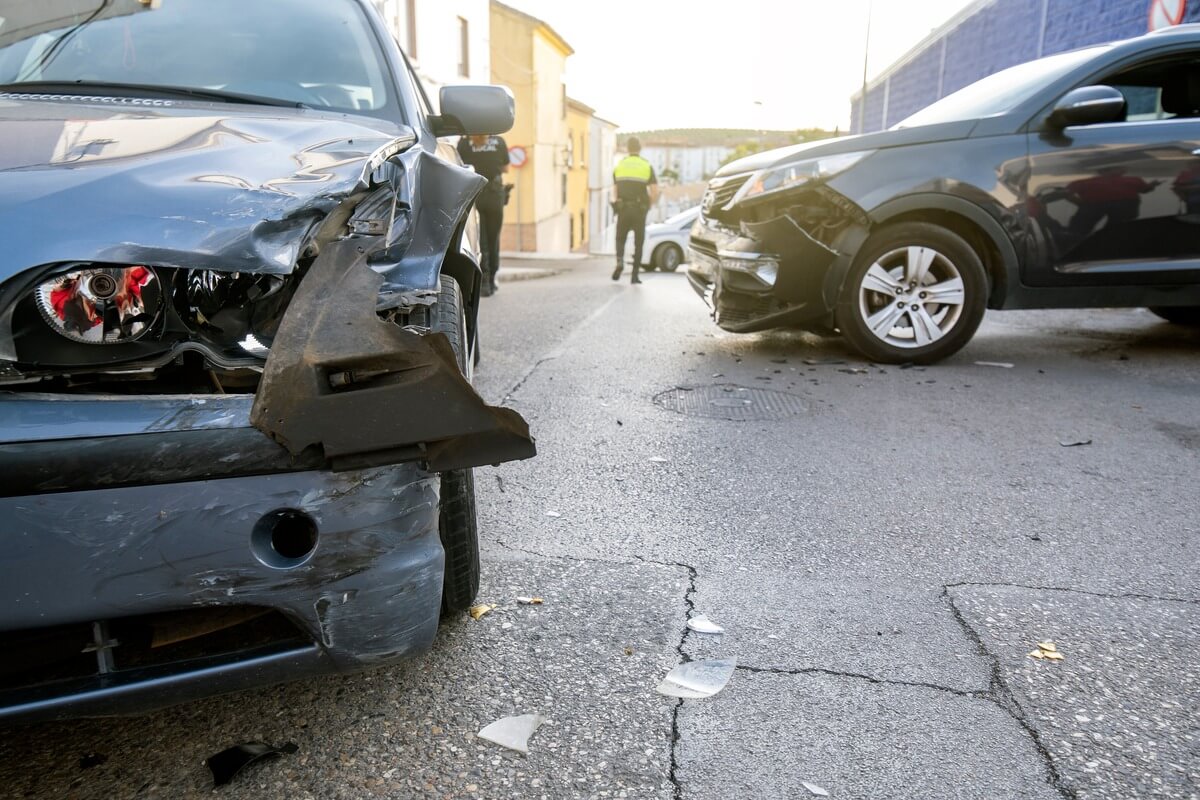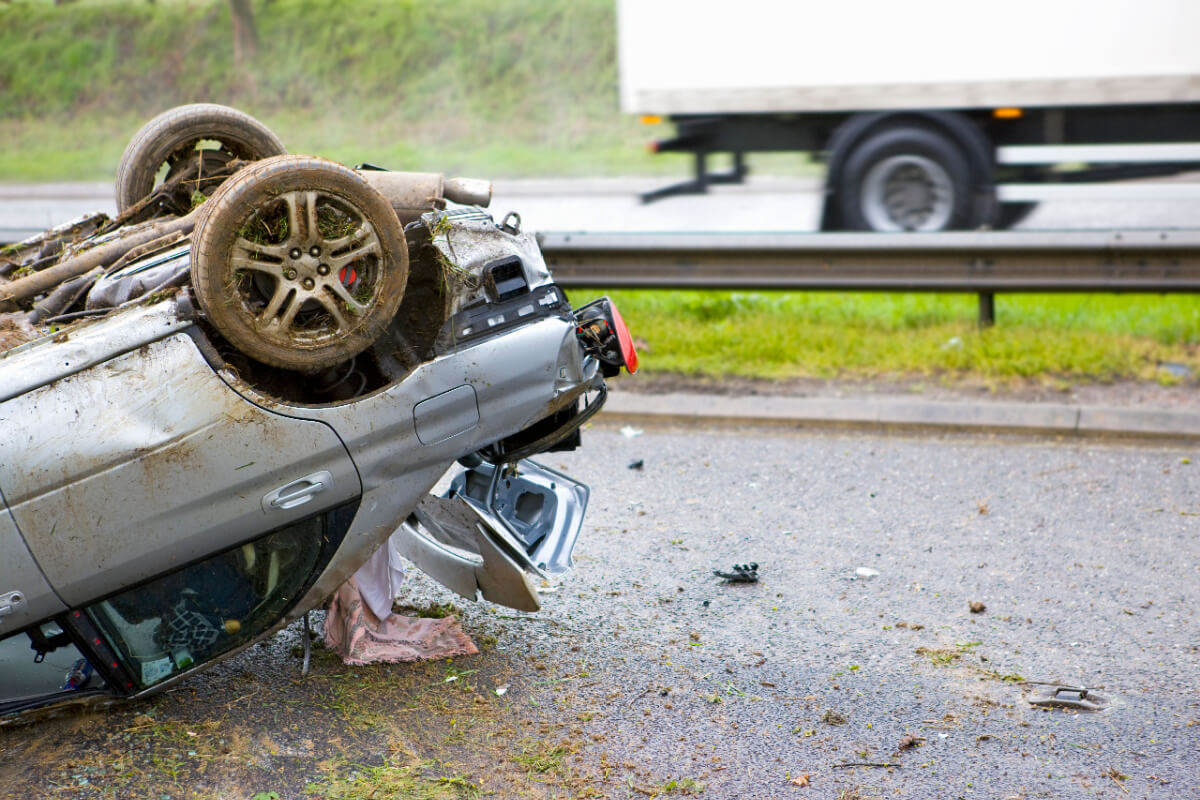
Car accidents are the largest cause of unintentional injuries in the United States, and the total cost of these injuries is a whopping $445.6 billion. Being involved in an injury-related accident is a terrifying experience. At the moment of impact, you may be filled with adrenaline, fear, confusion, or anger. Often, this adrenaline can mask serious injuries, while other injuries can take weeks, months, or even (in rare cases) years to fully develop. Not only do you have to navigate the expensive and complicated healthcare landscape to treat your injuries, but you may also rack up significant costs associated with these injuries.
To help cover these costs and headaches, you may seek civil compensation related to any damages from the accident. But what happens if your injury symptoms don’t appear until weeks, months, or years after the accident? It’s always a good idea to contact a personal injury lawyer as-soon-as-possible after an accident. Unfortunately, you may not be aware that any damages happened until a significant amount of time after the accident occurred.
So, how long do you have to file a claim? What is the statute of limitations? And what do you do if your injuries popped up after the accident took place?
Understanding the Statute of Limitations in New Orleans
Every state has a statute of limitations. This civil law dictates the length of time you have to fill out an injury claim after an accident. Not only does every jurisdiction have its own statute of limitations, but the statute of limitations varies by claim type. So, there’s a set period of time to fill out a claim after medical malpractice, and possibly a different period of time to fill out a claim after an automobile accident.
According to Halsbury’s Laws of England, there are three main reasons that the statute of limitation exists, including:
- To ensure that evidence is not lost. Over time, evidence from accidents can get lost, damaged, or simply fade away with time. A great example of this is car damages. The defendant may not have pictures of car damages on their smartphone after a year or two, and they may have also purchased a new vehicle. Additionally, the statute of limitations prevents witnesses from being paid off or bribed since prosecutors and defendants only have a set period of time to call them to the stand.
- To prevent cruelty. Courts have noted that punishing or ruling against a defendant who has built their life around the presumption of innocence for years is crueler than punishing or ruling against a defendant who “has slept upon his right and never possessed it.” In other words, punishing defendants years after the fact may cause undue hardship. They may have moved on, gotten married, had children, and live in another area.
- To prevent blackmail. The statute of limitations prevents any defendants from being blackmailed by the threat of legal action for their entire lives. Plaintiffs should pressure claims with reasonable diligence.
The statute of limitations only applies to court cases. There is no statute of limitations for insurance claims, which are handled independently.
In New Orleans, the statute of limitations for motor vehicle accident injuries is one year. This means you have one year from the date of the accident to file a claim to stay within that statute of limitations. After that year, you can still file a claim, but the defendant can quickly file a motion to dismiss based on the statute of limitations.
Exceptions to the One-Year Rule
Every situation is different. Almost all laws leave wiggle room and exceptions for special circumstances, and the statute of limitations is no different. There are a few exceptions to New Orleans’ one-year statute of limitations, including:
- The “discovery rule” and equitable tolling: You can receive an extension to the statute of limitations if you discover your injury after-the-face. Common injuries that appear weeks, months, or years after accidents include Traumatic Brain Injuries (TBIs), spinal cord injuries, and mental disorders. You should contact your lawyer to discuss details on this type of case. If there’s no way you could have known about your injury until the date of the statute of limitations passed, you may be able to file an extension and pursue a claim.
- Special exemption for minors: Louisiana Ci. Code. Art. 3492 dictates that minors are not subject to the statute of limitations until they turn 18 years of age. So, if you were injured at 16, you may be able to pursue a claim when you’re 18, regardless of the statute of limitations one-year rule.
Additionally, there may be other special circumstances (e.g., the defendant fled the state after the accident, etc.) that may be cause for a statute of limitations extension. It’s important to contact your personal injury lawyer immediately after discovering any injuries resulting from an accident — no matter the amount of time that has passed.
Louisiana is an “At-Fault” State
Like most states, Louisiana is an “at-fault” state. This means that the at-fault party in the accident is responsible for paying any damages related to the accident. Your personal injury lawyer (along with police) can help you identify the at-fault party in the accident. Each state has its own laws regarding negligence, fault, and injury, so it’s important to discuss the details with an injury lawyer that specializes in personal injury cases in New Orleans.
Additionally, New Orleans car accident injury claims operate on “comparative negligence.” This means that each party can be deemed partially at fault for an accident, but that doesn’t prevent one party from creating a claim against another party. So, let’s say that you get in an accident that causes an injury. You bring a claim against the at-fault driver to cover your medical bills and damages. The court determines that you are 20% responsible for the accident. In this case, 20% of the damages you’re pursuing would be deducted from your final ruling. Let’s say that you received a $50,000 reward. Since you were deemed 20% responsible, your actual reward would be $40,000.
Get In Touch With A Personal Injury Lawyer Today
Understanding the intricacies of personal injury cases, especially after an accident, can be challenging. It’s crucial to familiarize oneself with the factors leading up to the accident, such as identifying the top causes of car accidents in New Orleans. Delving into resources like this comprehensive guide on car accidents or understanding what causes most car accidents in Orleans can provide valuable insights.
Moreover, knowing when and why to hire a lawyer after a car accident in Orleans is pivotal in ensuring you receive the right representation. However, car accidents are not the only scenario; premises liability cases, where someone gets hurt due to unsafe conditions on someone else’s property, are also common. Brush up on premises liability to better understand this area of personal injury. And on a lighter note, did you know Louisiana has some peculiar laws? Discover some of the crazy Louisiana laws that might surprise you!
Were you injured in an accident? Did your injuries take a while to manifest? You may deserve compensation, regardless of how long it’s been. Contact our New Orleans personal injury line at 504-200-0000 for a free consultation or visit us online to discuss your accident. Whether your injuries appeared immediately or years after an accident, we may be able to help you get the compensation you rightfully deserve.
Categories
- Bicycle Accidents
- Car Accident
- Case results
- Class Action
- Community Aid
- COVID-19
- Fun
- General
- Hard Rock Lawsuits
- Holiday
- Insurance Claims
- Legal Advice
- Mardi Gras Accident Attorney
- Mass Tort
- Medical
- Motorcycle Accident
- Personal Injury
- Practices
- Premise Liability
- Recent News
- Safety
- Truck Accidents
- Uncategorized
- Weather
- Work-Related Accident

In 2003, after being dissatisfied with the quality of legal care for victims of car accidents, Roderick ‘Rico’ Alvendia sought to establish a new firm focused on providing high-quality legal services to aid injured victims and their families. J. Bart Kelly, sharing Rico’s passion for upholding justice, joined the firm later that year, and established a partnership.






